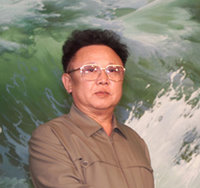Two great uncertainties define the current succession process in North Korea. First, will the new leadership pursue aggressive or moderate foreign policies? Second, how should foreign countries respond to the new situation in the Democratic People’s Republic of Korea (DPRK)?
Given how little we know about North Korea’s internal politics, the first question is difficult to address. Although some indicators of future behavior should emerge in coming weeks, the succession process could take years to evolve. The North Korean regime may continue to muddle through, remaining a military threat to South Korea -- and other states -- and representing a continued risk to regional security.
Nonetheless, the process of dynastic succession now underway in North Korea is proceeding under much less favorable circumstances for Pyongyang than during the first dynastic transfer following Kim Il Sung’s death in 1994. Whereas Kim Jong Il had two decades of fatherly guidance and support to prepare for his new post, Kim Jong-un has had only two years to prepare.

